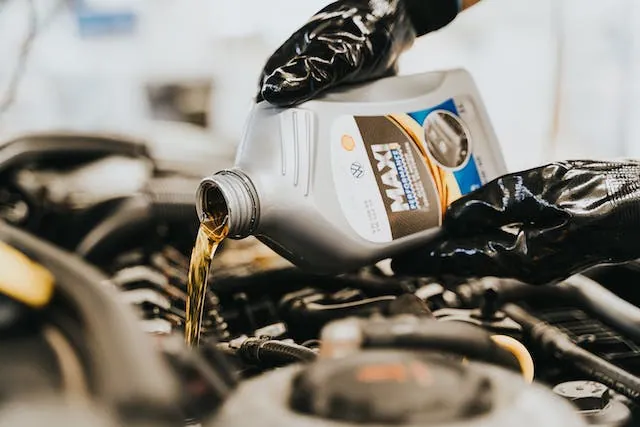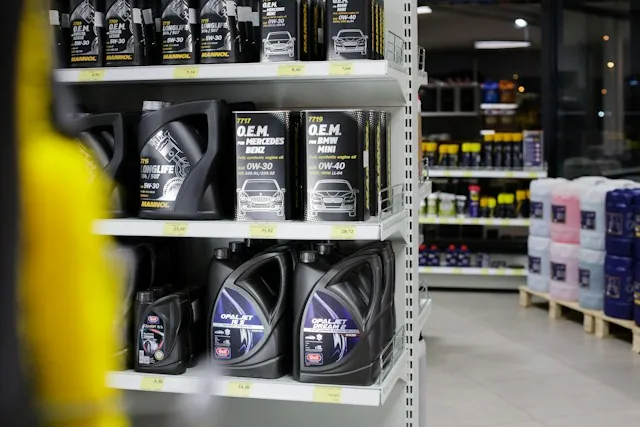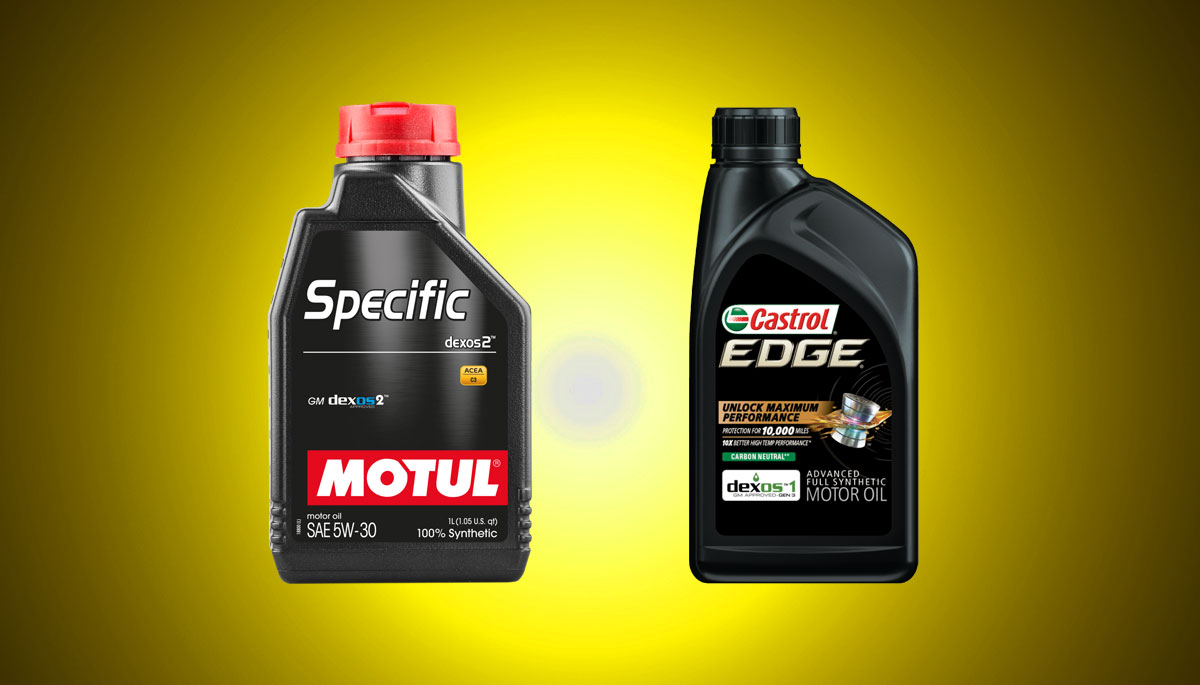Engine oil is easily the most crucial consumable, dictating engine longevity. However, the right match depends on various factors – from operating temperatures and driving style to car age and OEM recommendations.
This oil buyer’s guide simplifies the selection process for Indian conditions.
Why the Right Engine Oil Matters
Engine oil enables smooth functioning and longevity of the motor by:
Keeping Metal Surfaces Apart
Oil forms a thin layer between components, preventing metal-to-metal contact during combustion cycles. This friction would otherwise wear out surfaces prematurely.
Sealing Compression and Maintaining Pressure
Thin oil films also seal very high cylinder pressures. Else, blow-by gases drastically reduce engine power.
Absorbing Vibration and Noise
Lastly, engine vibration passes through to chassis via rubber mounts. Oil dampens transmission of NVH too.
Choosing quality oil specifically suited to operating conditions ensures maximum lubrication protection and keeps repair bills away.

Factor in Ambient Temperature
Hot Indian summers and cold winters warrant using different viscosity grade oils:
Heat Thins Out Oil Film As temperature rises, oil viscosity drops rapidly. Too thin oil fails to separate metal surfaces, leading to accelerated wear.
Cold Thickens Oil Hampering Flow
Colder weather thickens up lubricant. The oil then struggles to circulate on cold starts to vital components like camshafts.
Use Higher Viscosity Oils in India Thus hot regions like India require higher viscosity oils that maintain adequate thickness at soaring under-hood temperatures.
Recommended Grades for India
| Season | Grade |
|---|---|
| Summer | 10W-40 or 15W-50 |
| Rainy Season | 10W-40 or 15W-40 |
| Winter | 5W-30 or 0W-20 (for colder regions) |
The hotter it gets, the thicker oil grade your engine needs.
Favor Thinner Oils for Modern Fuel Efficient Cars
However, modern engines focus on maximizing kilometers per liter using innovative technologies:
Tighter Tolerances
Precision machining with tighter clearances reduces oil volumes required between contact surfaces.
Lower Frictional Losses
Advances like piston ring coatings, roller cams minimize intrinsic friction, allowing thinner oils.
Superior Materials
Heat treatment advances allow lightweight alloys sustaining loads with thinner lubrication.
Thinner oils reduce parasitic losses, robbing engine power. Thus, newer cars run optimally on slightly thinner 0W-20 or 5W-30 oils despite heat. Strike a balance between ambient temperature needs and engine requirements.

Check API Ratings Denoting Fuel Economy and Performance
American Petroleum Institute (API) ratings reliably indicate oil capabilities:
API SN Plus Oils
Look for SN Plus rating, a notch above SN grade for petrol and diesel engines. The extra margin reduces emission particulate build up while protecting sophisticated turbocharged engines better.
Backward Compatibility
Higher SN Plus grades also retain backward compatibility. Using them does not harm older, simpler engines.
Quality oils clearly print ILSAC GF-5/API SN Plus rating markers on the bottle. Never compromise and buy cheaper, obsolete API SM grade oils offered in the market.
Synthetic Oils Withstand Heat Far Better
While premium fully synthetic oils cost 20-30% higher, they offer invaluable benefits:
Greater Heat Tolerance
Synthetics retain viscosity 40% better at high temperatures compared to crude based mineral oils. Ideal for tropical belts like India.
Lower Evaporation Losses
Minimal organic volatile compounds reduce oil vaporization even at 200°C plus temperatures around exhaust components.
Resist Oil Oxidation and Acidity
Full synthetics neutralize harsh byproducts of combustion, avoiding corrosive damage to metal surfaces that thinner mineral lubricants struggle with.
Significantly Extended Drain Intervals
With superior formulation, synthetic oils retain properties up to 15,000 kilometers before changes, against 8,000 kilometers for conventional oils.
While upfront investment seems higher, synthetic oils deliver more value, protecting the engine over the long run.

Checking Owner’s Manual Recommendations
Surprisingly, the default guide lies inside the car’s glove box itself!
Model Specific Guidelines
Car manufacturers tailor viscosity recommendations based on engine technologies used, clearances maintained and temperatures expected in target markets. The grades factor an ideal balance between friction and flow.
Driving Condition Specifics
Ambient temperature charts further breakup suggestions based on climates across operating regions – whether Russia or Malaysia!
Use manual recommendations as the gospel truth when deciding on engine oil for your car. Consider going one grade thicker if mostly driving in stop-go conditions.
Tailor Grades as per Driving Conditions
Urban commutes and highway cruising warrant some adaptation:
Stop-Go Traffic Necessitates Thicker Oil Excess idling, longer warm up requirements and high temperatures of congested driving degrade oil quickly. Slightly thicker 20W oils handle these better.
Highway Cruises Allow Thinner Oils
But considerable highway miles at steady high speeds generates sufficient lubricant flow even with slightly thinner oils. Using the recommended grade itself yields good protection.
As conditions change from city to highway driving with road trips, choose the right oil viscosity grade accordingly.

Sometimes Exceeding OEM Recommendations is Wise
Consider choosing slightly thicker oils than specified for additional safety margin in certain cases:
Older Engines Above 100k Kilometers
Wear between contacting surfaces increase with age. A thicker film ensures better boundary layer lubrication for high mileage engines.
Modified Engines Running More Power
Aftermarket intake and exhaust modifications along with tuning chips increase combustion intensity. This elevates cylinder wear, requiring thicker oil.
City Driving in Peak Traffic
Stop-go urban conditions cause oil to break down faster failing to protect, especially with short distance trips preventing sufficient operating warmth.
Affordable Insurance Against Expensive Engine Repairs Thicker oils that maintain higher pressures is inexpensive insurance against premature engine rebuilds.
Premium Oils Keep Engines Healthiest
We stand by our recommendation to use nothing less than premium oils for maximum payback:
Synthetic Oils
Fully synthetic grade from a reputable brand costs just 10-15% extra, but gives 50% better protection for modern turbocharged engines and nearly double oil change intervals. Their superior additive packs keep engine internals almost as good as new, even beyond 100k kilometers.
Top Tier Additive Packs Leading brands invest heavily in high quality proprietary additive packages. Things like anti-wear agents, foam inhibitors, metal deactivators and cleaning agents retain peak properties for longer while neutralizing damaging combustion by-products internally much better. They offer noticeably longer engine life.
While more expensive oils seem unnecessary during new car ownership, their value becomes evident as odometer readings increase or when starting cars on cold, rainy mornings with a sweet purr instead of a strained cranking. Invest in good oil to invest in your car’s future.





